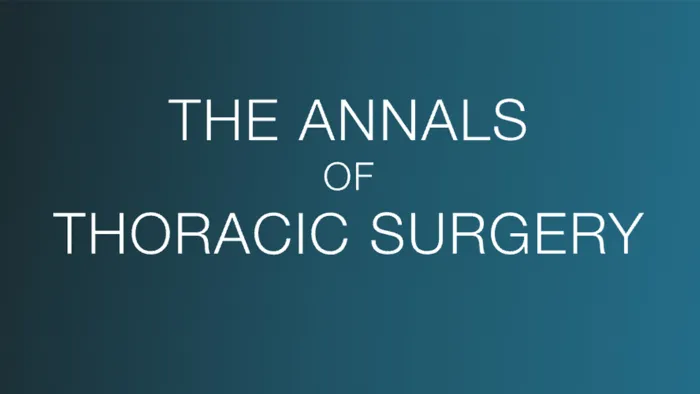STS News, Winter 2022 — With in-person registration numbers on track to rival those of STS 2019 and 2020—and with hundreds more attendees joining virtually—the STS 58th Annual Meeting promises to be a congress of both professional excellence and human connection.
STS 2022, taking place January 29–31 in Miami Beach, Florida, will feature more than 40 educational sessions, late-breaking research, nearly 200 electronic posters, industry presentations, and more. Social offerings and resident events will give attendees unique opportunities to have meaningful interactions with colleagues.
“Whether you join us in Miami or tune in from across the world, the cardiothoracic surgical community has the chance to experience STS 2022,” said John D. Mitchell, MD, chair of the STS Workforce on Annual Meeting. “We’re excited to be together again, and we’re proud of the phenomenal program the meeting has to offer.”
The Thomas B. Ferguson Lecture on Saturday, January 29, will be presented by Amy C. Edmonson, PhD, Novartis Professor of Leadership and Management at Harvard Business School. Dr. Edmonson, author of The Fearless Organization: Creating Psychological Safety in the Workplace for Learning, Innovation, and Growth, will share insights from her groundbreaking work on psychological safety in the workplace and its relevance to cardiothoracic surgery.
Championing the spirit of community and solidarity, Henri R. Ford, MD, MHA, will lend his expertise to the Vivien T. Thomas Lecture on Saturday evening. Dr. Ford, a Haitian-American pediatric surgeon who serves as dean of the University of Miami Miller School of Medicine, has returned to Haiti multiple times to offer his services at underfunded hospitals and provide emergency surgeries to children at field facilities following the January 2010 earthquake.
On Sunday, Sean C. Grondin, MD, MPH, FRCSC, will deliver his Presidential Address at 11:00 a.m. ET.
“Army War Surgery: A Surgeon’s Journey and Lessons Learned” is this year’s C. Walton Lillehei Lecture, presented by Colonel (ret) Cameron D. Wright, MD, Army Medical Corps, USAR, on Monday. Dr. Wright will offer his perspectives on the process of entering the Army Medical Corps, the deployment process, aspects of modern war surgery, lessons learned through his experience, and a reflection on the cost of war.
Resident Offerings Teach Networking and Negotiation
The STS Annual Meeting remains an unparalleled opportunity for residents, fellows, medical students, and early-career surgeons to build their network, learn from mentors, and explore undiscovered career paths. The Residents Luncheon at noon on Saturday during STS 2022 gives trainees a forum to meet their peers and hear insights from surgeon leaders. Later on Saturday, the Residents Symposium will provide valuable perspectives on transitioning from training to practice, including job searches and negotiations, investing in the future, the utility of social media, and taking care of oneself and one’s family.
Wellness, Inclusion Topics Bring Surgeon Suffering Out of the Dark
Emotional health and resiliency have become household topics for most, but the trope of the stoic, adaptable surgeon persists in engendering resistance when it comes to surgeons looking out for their own wellness. Simultaneously, uncomfortable truths about disparities in the treatment of different patient populations and surgeon recruitment have led to robust diversity initiatives, but the specialty still faces barriers to ensuring that underrepresented individuals are part of the conversation. STS 2022 offers a rich array of sessions that illuminate these issues, from pandemic aftershocks and work-life balance to careers in global surgery and representation of non-white populations in randomized trials.
Presentations, Protocols Keep Pace with COVID
As the medical community adapts to a continual influx of new discoveries around COVID variants and their consequences, STS 2022 offerings stay abreast of the latest management techniques. Dozens of sessions, presentations, and posters cover COVID-focused topics, including ECMO, transplantation, ethical dilemmas, racial disparities, and COVID’s effect on operative outcomes.
And as the pandemic stretches on, STS continues to monitor and update the guidance for attendees joining STS 2022 in Florida. The latest safety protocols are posted at sts.org/AMcovid.
Social Events Bring Community ‘Together Again’
In addition to wellness activities each morning, STS 2022 will provide several events for attendees to socialize, unwind, and learn from each other. The STS-PAC Reception on Saturday evening is open to donors who have contributed to STS-PAC efforts in 2021. The President’s Reception on Saturday night, which requires an additional ticket, offers attendees the opportunity to meet and catch up over hors d’oeuvres and cocktails. Sunday night’s Exhibit Hall Reception and Poster Event is the best opportunity to experience the exhibit floor in the company of fellow cardiothoracic surgery professionals and meet with industry representatives.
“The scientific content, venue, and social program are first rate, and we encourage all who can to come to the live meeting in Miami,” Dr. Mitchell said. “The educational and professional synergy for cardiothoracic surgeons, after 2 years apart, will be incredible!”
If you haven’t registered yet, there still is time to secure your spot. A virtual option also is available. STS members receive discounted rates, and Candidate and Pre-Candidate Members can register for free. Registration also includes complimentary access to Annual Meeting Online, a web-based video presentation of most sessions offered at STS 2022. More information is available at sts.org/annualmeeting.
